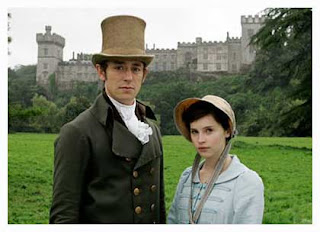Well. I had this brilliant idea of searching Google Books for 11 November and limiting my search to 1800 – 1825. Because I wanted to avoid the poignancy of the 11th hour of the 11th day of the 11th month, 1918. It makes me sad. Do please take a moment to think about the men and women who have given their lives for the country you’re from.
That said, what about November 11 in history prior to 1825?
Oh. My. God. Can you spell B. O. R. I. N. G?
Some dude, I can’t even remember his name filed a patent for an improved truss. Then this other fool was going on about the United States, Britain and impressment and his stupid letter of November 11 the previous year (which would have been 1813), Skipped that because there were no sailors at all.
Catalogue of Merino Sheep sold at auction? That just made me hungry and not because I was thinking of mutton which I don’t like all the much. Or lamb chops, which I probably do but can’t eat ever since the day my mother served us lamb chops made from the lambs which until recently had been gamboling in our field. All five siblings (yours truly included) looked at our plates in dead silence. As I recall, we had Cheerios for dinner instead. I got hungry because the auction yard 2 miles down the road has this awesome hot dog stand, and they have a really spicy polish you can get with cold root beer. Anyway, the sheep auction was actually on November 2, but at 11:00. In case you’re wondering.
Then there was this writ of Supersedas (No 11) against a surgeon for gross negligence and carelessness. The court did not grant a new trial. That was in 1826.
One interesting result was from 1808, but Google seems to think there’s a copyright issue. WTF? No. Google. There’s not. Just why, I would like to know, are so many books that are more than 200 years old, being withheld on grounds of copyright? I thought the whole point of this was that Google got to scan all this public domain stuff so the public could actually see it. This is not an isolated incident and now I’m just [delete bad word] not happy.
There was lightning on November 11 1808 but that is also rendered a mostly useless snippet (said with great scorn) by a spurious claim of copyright. I am unable to tell you where in the UK this lightning occurred.
However, I did learn that owners of fisheries in the Counties of Southampton and Wilts may take salmon from 11th November, to 1 August; but not after 1 August til 12 November following. I have a headache trying to figure when these poor folks could fish for salmon. There’s a fine of 5 pounds if you get it wrong.
Library of the late Charles Long, Esq. of Hurt’s Hall, Suffolk …: which will be sold by auction … on Thursday, November 11, 1813, and five following days (Sunday excepted).
I can’t tell you what was in his library because, you guessed it, Google thinks there’s a copyright issue and won’t show a document that is in the public domain.
At this point, I’m afraid, I was both BORED out of my mind and really, really irritated.
So instead, I searched for demons 1400 to 1825 and that was more fun. But kind of weird. People took their demons very literally. And used extra large fonts like this DEMONS!!! and also like this SATAN and Beelezebub!!!!!
In Act 5 of a Play called The Brothers, a woman was invited to a wedding only to find that the happy groom was her own husband! Check it:
Via. Thus insulted, I can contain myself no longer. Upon what infernal shore am I cast? Into what society of demons am I fall’n, that a woman, whom by an act of honour I would have redeem’d from misery and ruin, should have the insolence, the inhumanity, to invite me to be a spectatress of her marriage with my own husband!
Pat. With your husband I What do I hear? Is Mr. Andrew Belfield your husband?
Via. Ay, do you doubt it ( Would I could say he was not)
Pat.Just Heaven! You then are the Violetta, you are the Portuguese lady I have heard so much of, and married to Mr. Belfield : base and perfidious!
Why, madam, both Miss Dove and myself conceived that ’twas the young adventurer with whom you suffered shipwreck, that —
Fio. What? Lewson, the brave, generous, honourable Lewson
Pat. Lewson? Lewson? I as sure as can be you mean young Belfield; for now the recollection strikes me, that I’ve heard he took that name before he quitted England. That Lewson, madam, whom we believed you married to, is Robert Belfield, and younger brother to your husband.
Via. Mercy defend me, into what distress had this mutual mistake nearly involved us
Pat. Come then, madam, let us lose no time, but fly with all dispatch to Cropley-castle ; I have a postchaise waiting, which will convey us thither in a few minutes ; but, before we go, I’ll step in and direct,
And thank goodness for the postchaise, just waiting there.
Plus how many of you think (as I do) that the brave and generous Lewson wasn’t all that brave but was probably all too generous? And, what do you think happens at Cropley-castle? Is she married to Andrew or Robert and who the hell is Lewson?
Boy, they just don’t write plays like they used to.


















